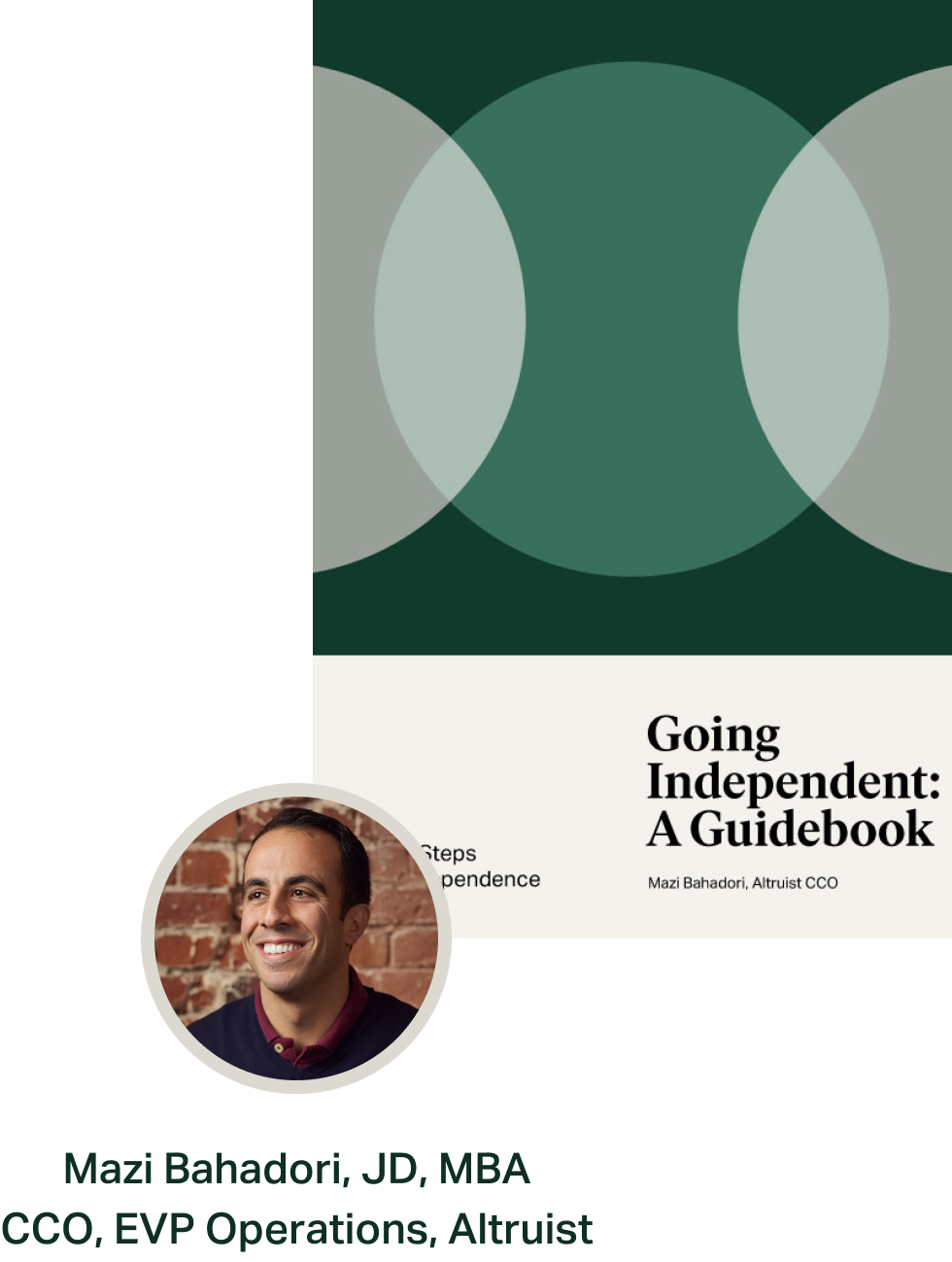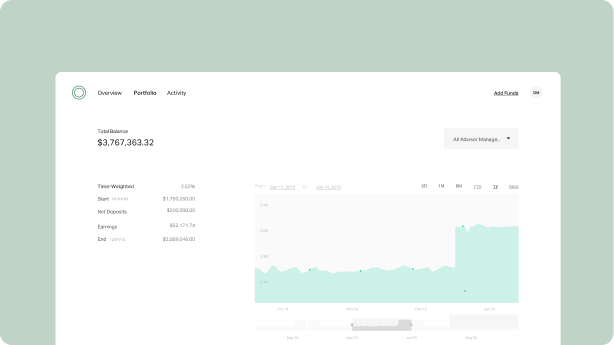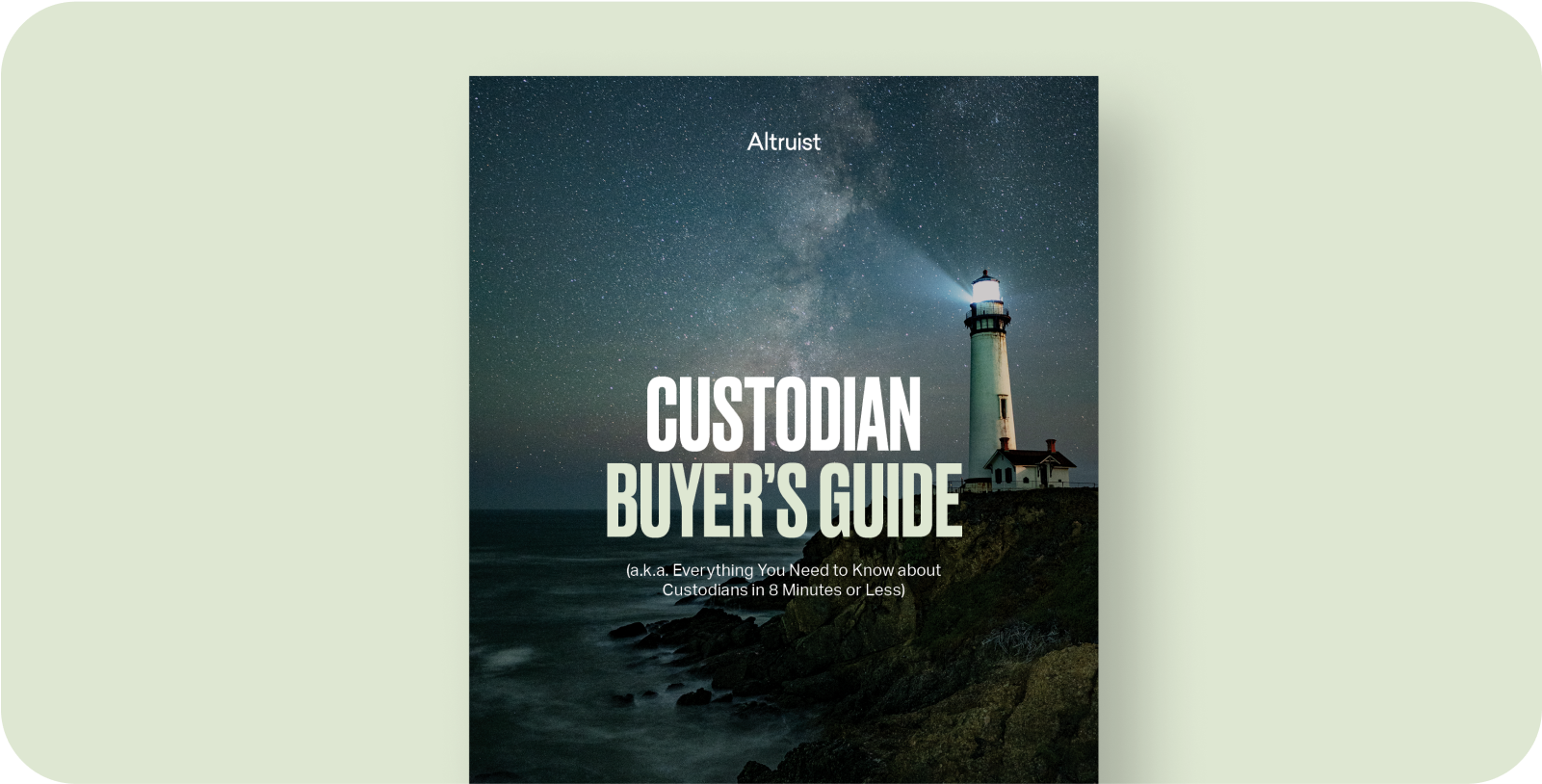So you want to know how to become an RIA?
If you’re a financial advisor at a wirehouse, odds are you consider going independent and starting your own RIA at least once a year. You likely think about the years of hard work it took to build your book and how your firm continues to take 40% of your production while forcing you to use antiquated software.
If you’re at a regional firm or independent broker-dealer, chances are you still think about going independent because the payout rates may not be great, and the software leaves much to be desired.
There are more than 300,000 financial advisors in the United States, but only a few hundred RIAs are formed each year. The reason so few advisors break free is simple: It’s a confusing process. Instead of encouraging advisors to take the leap and equip them with the right information, employers sometimes do everything they can to keep advisors where they are–saying that it is too expensive, too hard, etc. Fortunately, we’re here to debunk the bad advice and help you see that launching and succeeding as an RIA is more than possible.
In our Going Independent series, we’ve created a set of articles to help advisers consider when and how to become an RIA:
- A guided checklist to forming your own RIA
- Everything you need to know to set up compliance
- Business basics from securing office space to hiring employees
- Mistakes to avoid when filling out your ADV
- Registering your RIA with your state (or SEC)
- What does it cost to start your own RIA?
- How to transition clients to your new firm
- And finally, everything you need to know about custodians and choosing the right one for you
Our mission with this series is to help you intelligently make one of your life’s most important professional decisions.
To kick it off, in this article, we’re going through everything you need to know before you leap to start an RIA:
- Is it worth it?
- Review your agreements
- Series 65
- Setting up a business entity
- Registering with the state(s) and the SEC
- Selecting vendors
So let’s start with the million-dollar question.
Is going independent worth it?
Many factors should be considered before making a move for independence. Most simply, figuring out “is it worth it?” rests on advisors asking themselves three simple questions:
- Will I be able to offer my clients better financial advice?
- Will my clients stay with me?
- Will I be better off?
The first question typically yields an unequivocal yes. Without the constraints of a wirehouse pushing their products, the conflicts of interest, and the antiquated software, advisors are free to use any financial products they want to help them deliver the best possible advice to their clients.
The second question is probably given more thought than necessary because advisors often haven’t evaluated their client relationships correctly. Those advisors who see themselves only as investment provider may have difficulty here. But if you correctly diagnose a problem, people usually don’t care about the details because they trust in your expertise to ensure it’s the best possible solution. Thus, if your clients believe you understand what keeps them up at night and that you can help them sleep better, they’ll follow you to any new RIA, custodian, or investment model because they trust you.
The third question historically was where most advisors stopped. The fear that it could cost a lot of money to run an RIA, advisors felt it wasn’t worth it. However, the truth is that advisors who have successfully launched their RIAs are reaping the benefits of getting their time back and making more money in the long run. So whatever the cost, it’s really an investment in yourself than a loss. Plus, with Altruist, the path to starting an RIA has changed. Altruist has dramatically reduced advisor software costs, making it easier than ever to start your firm.

Review your employer agreement
This might seem like a no-brainer, but the devil is in the details. Read your employment agreement, speak with experts, and consult online resources. The last thing you want to do is tell your clients you’ll be starting your own firm in six months only to suffer legal action from your current employer because you violated a term of your employment contract.

Pass the series 65 exam
This is not required if you already have a Series 66 and Series 7, or CFP, CFA, CIC, ChFC, or PFS designation. If you don’t have any of those, then you will have to pass Series 65.
The Series 65 exam is administered by FINRA and includes 140 multiple choice questions covering a range of topics, including state and federal securities acts, ethical practices, basic economic concepts, financial reporting, types of risk, investment vehicles, etc. — basically everything you’ll need to stay compliant and uphold your fiduciary obligation as a financial advisor.
Set up a business entity
Setting up a legal entity, managing a business banking account, ensuring proper accounting reconciliations, and getting adequate insurance coverage are things that don’t add value to your RIA but help you keep the lights on.
First, you’ll need a lawyer. You need a legal entity, and you need agreements. You could go it alone by having a sole proprietorship and copying/pasting parts of an investment management agreement you’re already familiar with, but you might as well set aside every dollar you make as your disaster fund. Exposing yourself to unlimited liability and not tailoring your IMA are easy ways to turn tail-risk events into unmitigated disasters.
When it comes to setting up your business entity, each legal entity type has its pros and cons, and the right choice depends on your circumstances. The most common legal entity for RIAs is an LLC. While plenty of online services are available to establish your business entity, we highly recommend working with a seasoned attorney (especially if you’re leaving a wirehouse or broker-dealer). Your attorney can also review your employment agreement to clarify which client information you can and cannot bring with you. A multi-member LLC could work for partners, but depending on capital needs, your state, and growth plans, an S-Corp may be more appropriate.
Second, look for integration when it comes to accounting. The temptation may be to stick with whoever you’re using for your personal banking, but odds are you have better options. Software like QuickBooks integrates with certain banking and credit card providers, which virtually eliminates the need for you to save and upload receipts or perform month-end reconciliations. That’s more time giving financial advice and less time sorting out your business finances.
Register with the appropriate state(s) and keep the SEC happy
No matter what state you’re in, as an investment advisor, if you manage less than $100M in that state, solicit your services in that state, or even have 1 client in that state, then you must register with that state. Also, you must register with the SEC if you have more than $100M in AUM.
Having served as a Chief Compliance Officer for multiple SEC-registered investment advisers, take it from me: Keep the SEC happy. And the only way to do it is to hire a consultant or vendor with a proven track record of keeping them happy. By partnering with a compliance consultant, you will save yourself a world of hurt and hassle.
The services offered by companies like RIA In A Box and AdvisorAssist can expedite the process of submitting your Form ADV and ensure that you have all your compliance bases covered (including your client contract, policies & procedures, privacy policy, etc.).
If you’re hesitant about hiring a compliance consultant due to cost, consider the alternative: Forgetting a simple ADV update or not pre-clearing a routine trade could result in a fine, a costly deficiency letter, or an event you’ll forever need to disclose to every client.
Some consultants will promise the world, charge a fortune, and only give you off-the-shelf templatized documents. It’s easy to get caught up in their sales pitch if you’re unfamiliar with the requirements. At a minimum, you’ll need the following:
- FINRA entitlement
- Form ADV filing
- Form U4
- Investment Management Agreement
- Privacy Policy
- Compliance Manual & Code of Ethics
- Business Continuity Plan
- Information Security Policy
Keep in mind that these really are the absolute minimum documents you need. Depending on the type of securities you’re trading for your clients and your portfolio management strategies, you could need a dozen other policies and procedures and a robust compliance monitoring program.
Hiring a quality, cost-effective consultant will be key to ensuring you’re satisfying your regulatory obligations so that when the SEC or your state securities regulator visits, you’ll make it through the exam unscathed.
As part of this series, we’ll dig into best practices for hiring a compliance consultant, key issues to be aware of before filing your ADV, and how to easily tailor policies to your business.
Select your vendors
The area that turns most advisors off to becoming an RIA is vendor selection. Just look at a list of the things you need to run your business:
- Custodian
- CRM
- Financial planning software
- Performance reporting tools
- Trading program
- Client portal
- Risk analysis software
- Fee billing program
Before Altruist, an advisor would need to contract with 8 separate vendors just to get access to everything on this list. The lack of a fully integrated solution means advisors must spend their time switching between 8 different applications on their computers just to prepare for one client meeting.

Now with Altruist, advisors save time and get a best-in-class software tech stack in a fully integrated platform. Commission-free trading, performance reporting, automatic trade rebalancing, portfolio management tools, fee billing, and an elegant client portal allow the advisor to keep everything they earn.
Additionally, while all of the items listed are essential to running your business effectively, choosing a custodian is probably the most important decision an advisor will make. Your custodian is an essential part of your RIA’s operations. In making this selection, you’ll want to consider the client onboarding experience (is it paper-heavy? Or fully digital?), fee transparency, and quality of customer support.
We think our advisor software speaks for itself, so we won’t turn this into a sales pitch. The key takeaway here is that the cost of software is no longer a factor in determining whether to start a new RIA.
About Altruist
At Altruist, we strive to make independent financial advice better, more accessible, and more affordable. Our custody solution gives back precious time and capital to RIAs, so you can focus on what matters most: your clients and business.
On one intuitive, integrated platform, advisors can open and fund accounts, trade and rebalance, report, and bill, at a fraction of today’s edging-ever-higher technology costs.
For new firms, existing firms, and advisors planning to make the leap from their wirehouse —the grass really is greener— our dedicated customer support team ensures a smooth transition and exceptional ongoing service.
To see how we’re helping RIAs streamline operations, reduce overhead, and elevate the client experience, talk with one of our advisor advocates today.















